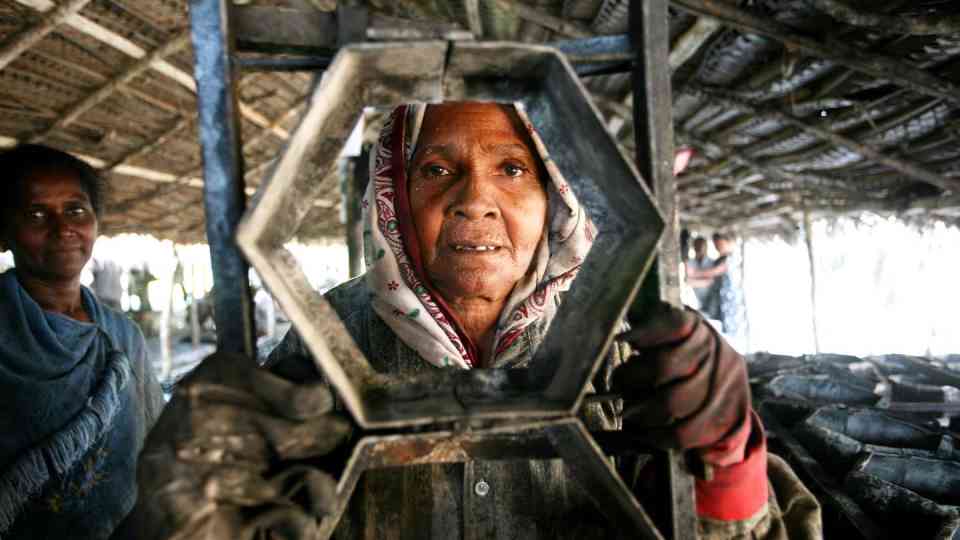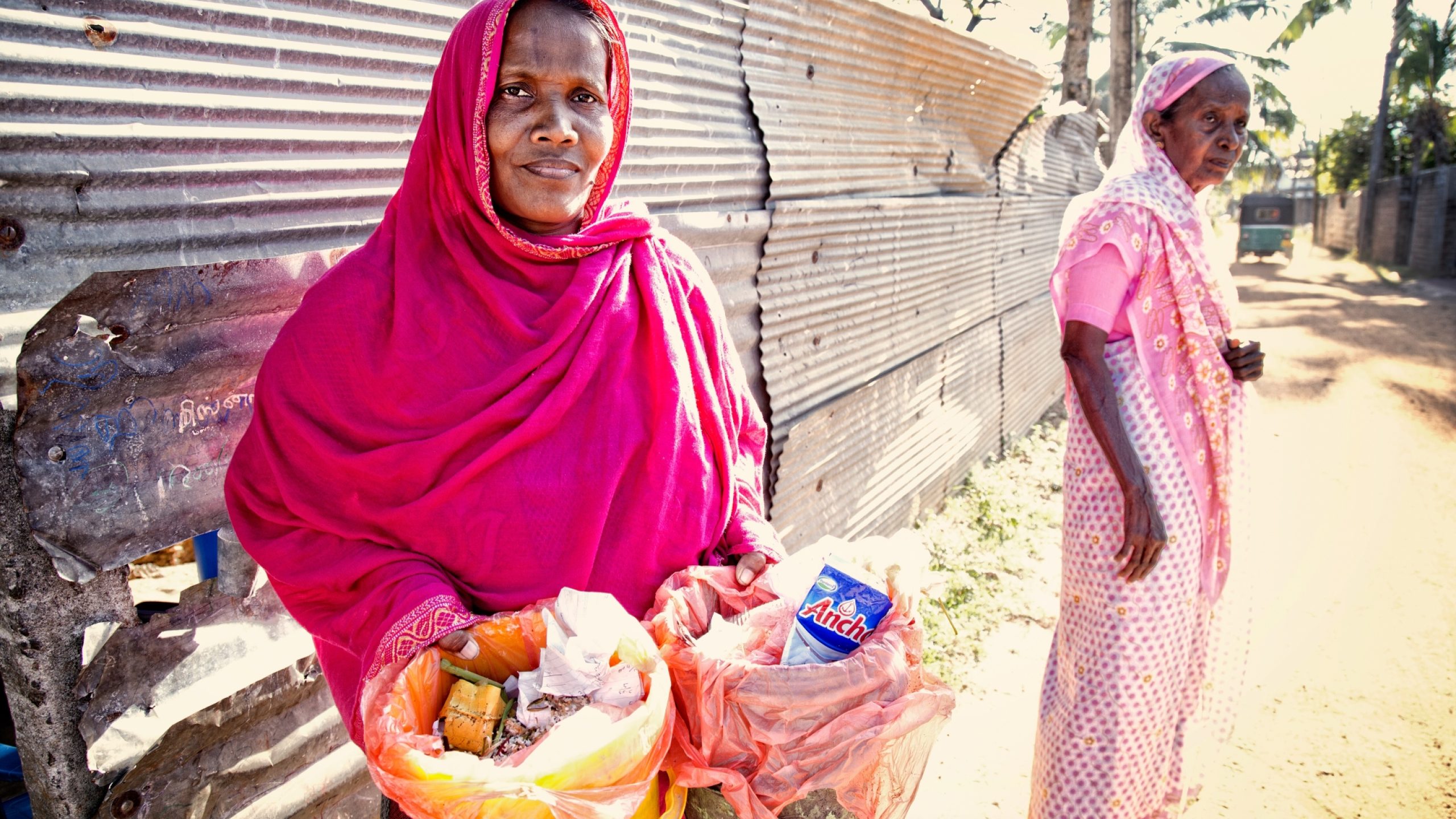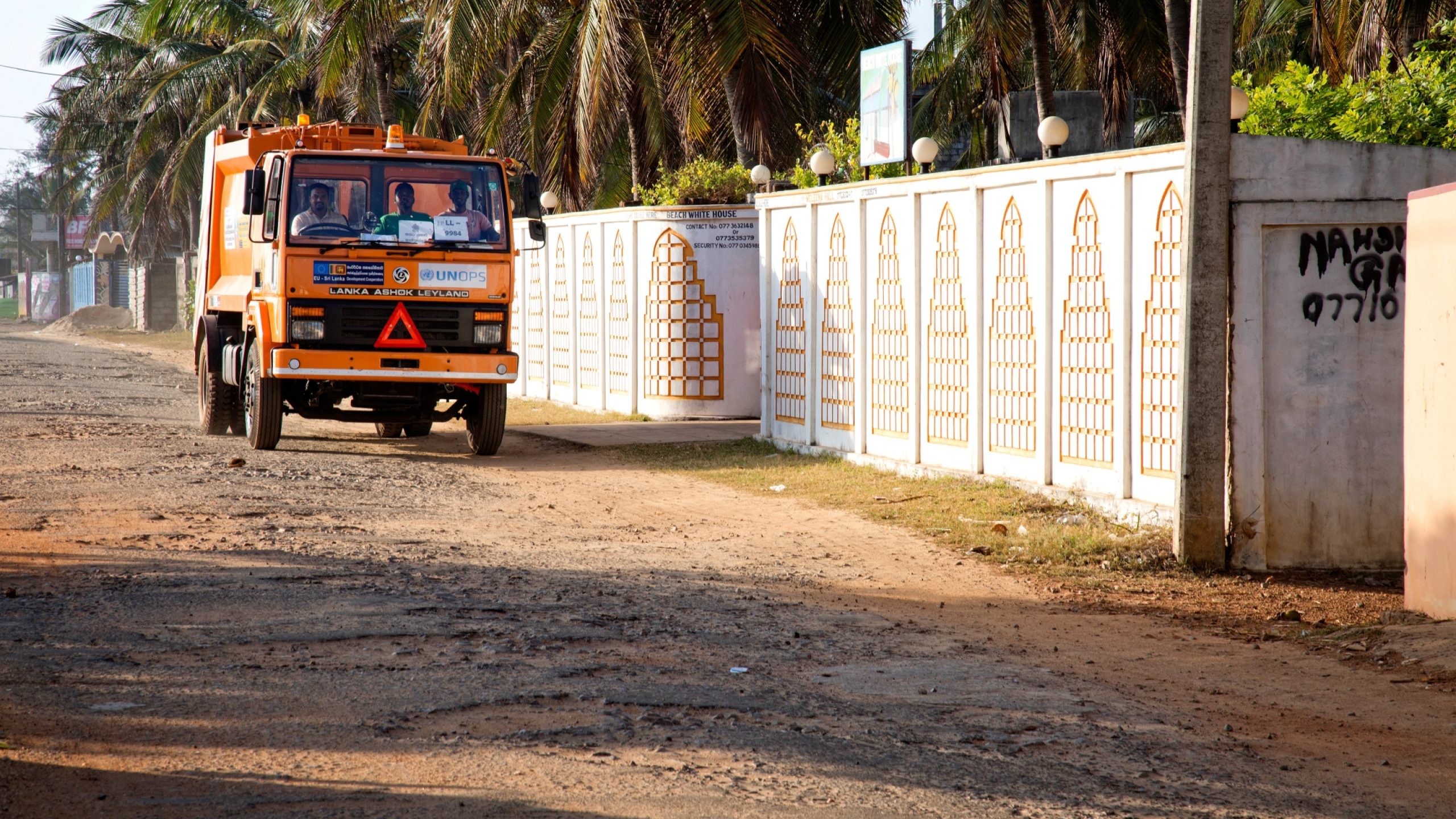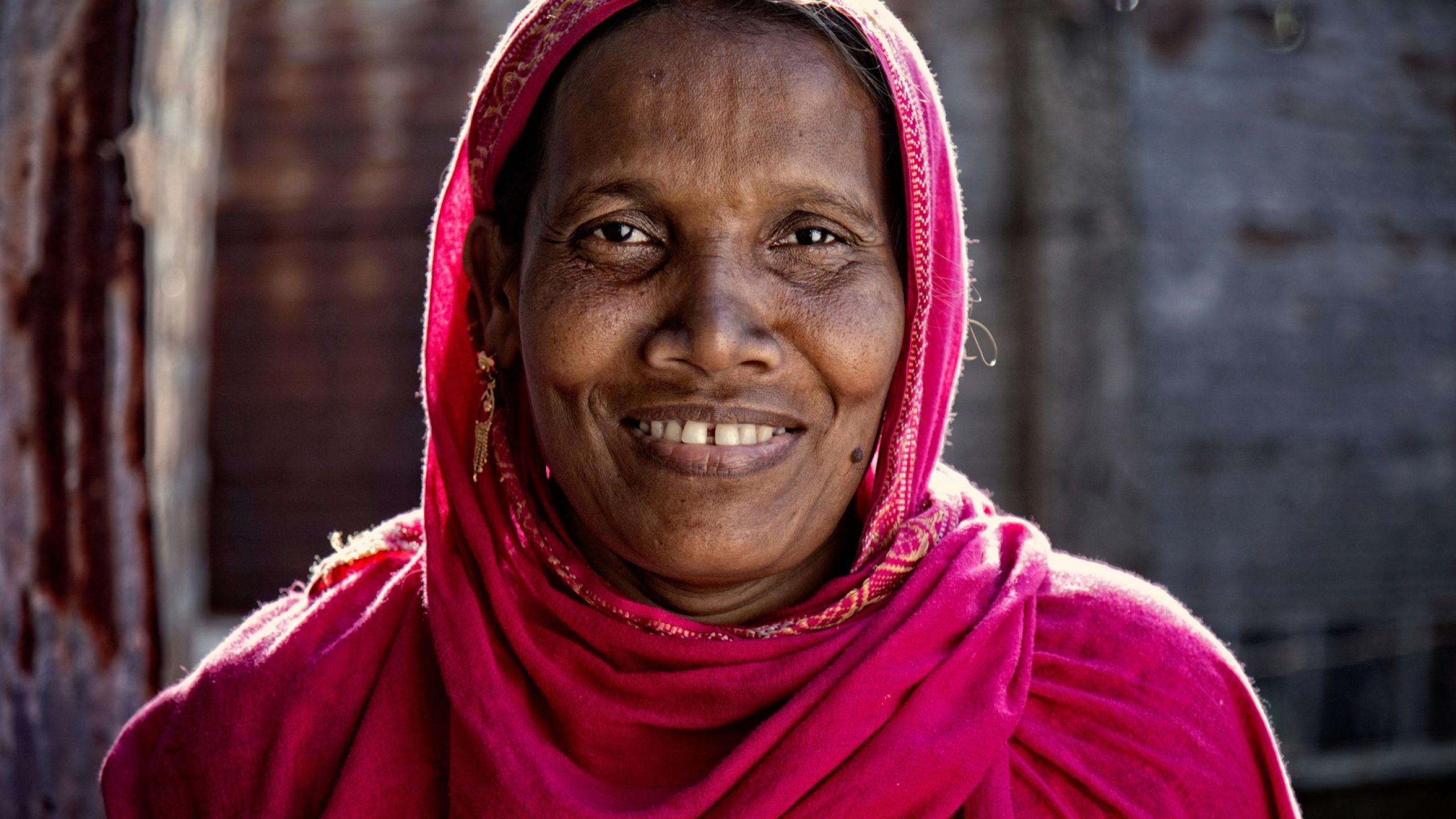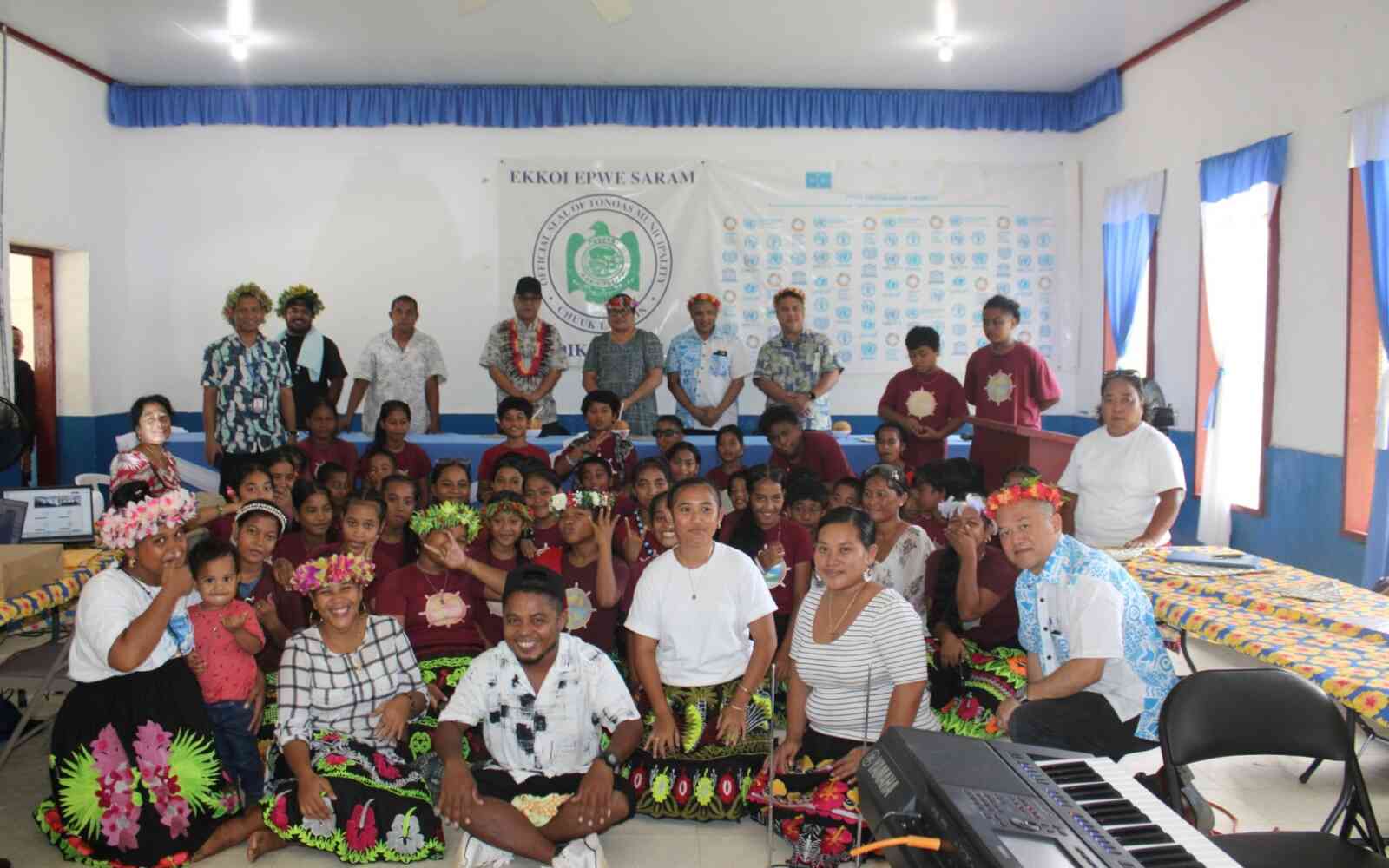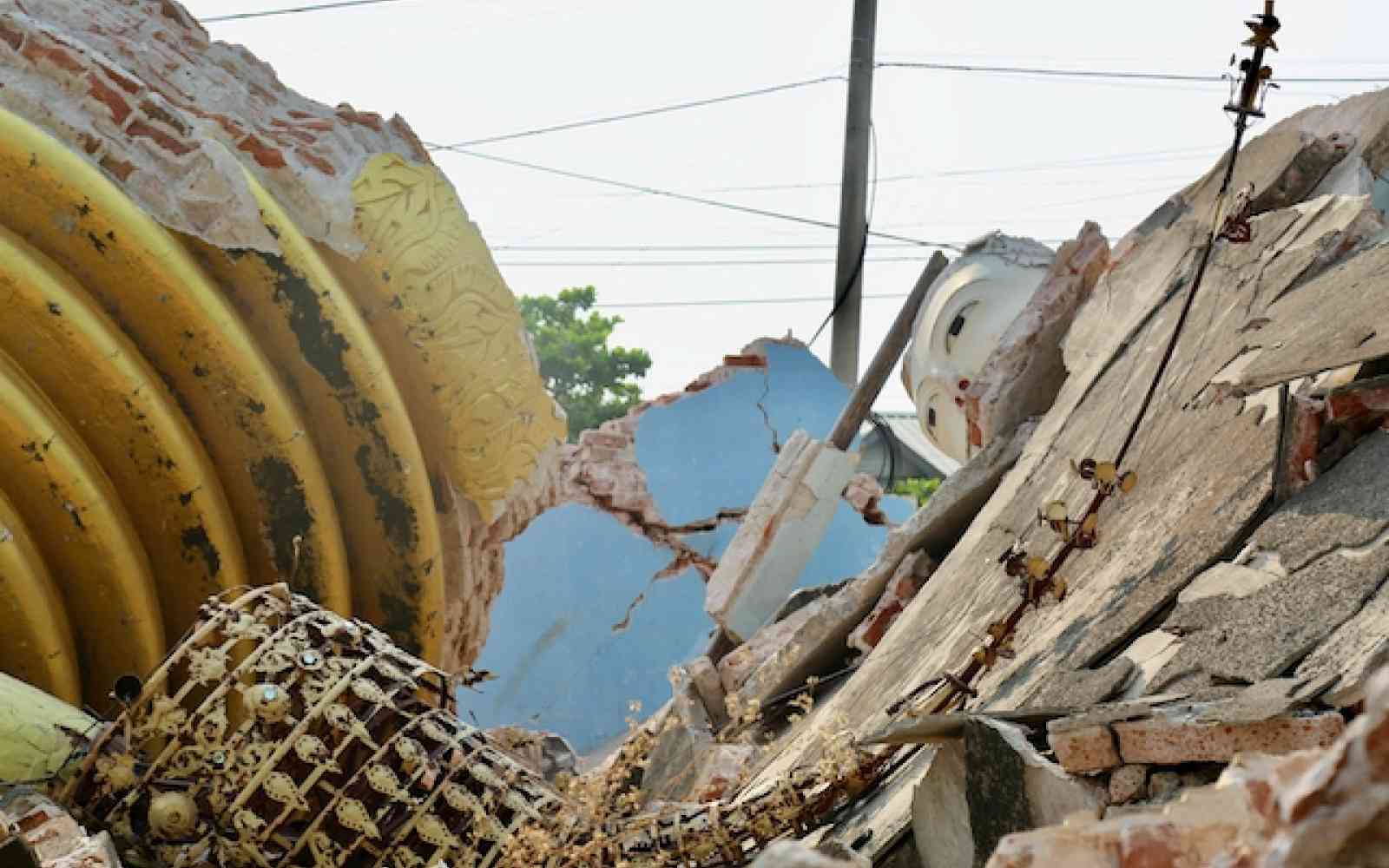The United Nations Office for Project Services (UNOPS)

Cleaning up for good
Kattankudy in the Batticaloa District of Sri Lanka faced overwhelming amounts of garbage and no place to dispose of it. With EU funding, UNOPS is implementing a sustainable waste management programme benefitting 80,000 residents.
The densely populated township of Kattankudy along the eastern coast of Sri Lanka had no designated area to dispose of waste legally. With waste management problems emanating throughout the district and no sustainable plan in place, local authorities resorted to disposing trash throughout the environment and in the nearby lagoon.
In 2012, residents held their first public protest demanding the Urban Council, the local authority in charge of waste management, to find a sustainable waste disposal solution that would not harm the environment. In response, local authorities relocated the trash to a landfill 160 km away. The solution, however, was too expensive to be sustained and shortly thereafter the lagoon was again used as dumpsite.

Following a second protest, and in an effort to find a sustainable solution, the local authority allocated land for a waste management facility. Due to a lack in technical knowledge and operational capacity, the Urban Council was unable to sustain operations and the facility was unutilised.
Once again, residents took to the streets.
This time, Kattankudy Urban Council reached out to UNOPS. Under the European Union Support to District's Development Programme (EU-SDDP), UNOPS partnered with the Urban Council to find a long-term solution to the increasing waste disposal problem through consultations with local communities and other stakeholders.
UNOPS provided support in infrastructure, financial and operational planning and management, skills and capacity development, community education and awareness-raising, and helped to establish monitoring systems, including an internet-based waste collection tracking system.
To ensure sustainability, several sources of income generation were identified.




In an effort to educate the community, UNOPS organized public discussions, house-to-house education visits, public campaigns, and training and coaching events. Community education focused on the importance of waste segregation, waste reduction, compost production, income generation, risks associated with improper waste handling and importantly, the 3R concept of "Reducing, Reusing and Recycling".
Education directors, school principals and teachers were educated on waste management, and educational programmes were implemented throughout schools.
Now community members contribute to sustainable waste management by applying Reduce, Reuse, Recycle concepts, and by segregating the waste. Sixty per cent of the waste received from beneficiaries is biodegradable materials and enhances compost operations; while 40 per cent is residual waste which is diverted to the landfill facility.
UNOPS teamed up with a leading mobile service provider in Sri Lanka to establish a modern tracking system to monitor the waste collection fleet and improve efficiency in the waste collection process – a first of its kind in Sri Lanka.
In addition, training programmes were organized for local authorities to enhance their planning, management and monitoring skills. Technical assistance was provided for operations, including developing route schedules and maps for waste collection, staggered collection of compostable versus disposable waste and improvement of recycling practices.
Project details
UNOPS is implementing solid waste management programmes in 11 other local authorities throughout the Batticaloa District under EU-SDDP. The EU programme, with a total financial envelope of EUR 60 million, aims to support the Government of Sri Lanka's focus on economic and social development in seven conflict-affected districts in the country.









